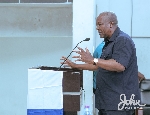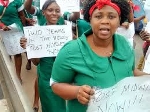Fires worsen as every Australian state hits 40C
 Australia fires
Australia fires
Scores of fires are burning out of control across Australia amid a heatwave which has seen temperatures exceed 40C (104F) in every state.
On Monday, the most dangerous fires were in the state of Victoria.
About 30,000 residents and tourists were urged to flee East Gippsland - a popular holiday region - but evacuations were later deemed too risky as fires encroached on major roads.
Nine people have died in the nation's bushfire crisis since September.
Victoria was worst-affected on Monday, as scorching temperatures, strong winds, and thunderstorms created dangerous conditions.
Emergency fire warnings were also issued for South Australia, New South Wales (NSW) and Tasmania on Monday.
In Sydney, NSW, more than a quarter of a million people have signed a petition calling for the New Year's Eve fireworks to be cancelled and the money spent on fighting fires.
How bad are the blazes in Victoria?In the East Gippsland region, three fires burning near the towns of Bruthen, Buchan and Bonang rapidly expanded as temperatures soared to the mid-40Cs.
Officials said the wind-driven blazes were "racing" towards the coast, and had moved faster than predicted.
"We have had a challenging day in Victoria," said Andrew Crispin, the state's emergency management commissioner.
He said the huge blazes had produced their own weather systems from smoke columns "punching into the atmosphere 14km high".
"There's lightning coming out of these columns. It is unpredictable [and] it's dangerous out there," he said.
Similar fire-generated thunderstorms - or pyrocumulonimbus - were also recorded in NSW.
Lightning strikes in dry, drought-affected forests have the potential to quickly become fires that threaten lives and homes.
Dry lightning sparked at least 70 new fires in the region in the past 24 hours, officials said.
A 250km (155-mile) stretch of the Princes Highway east of Bairnsdale was closed on Monday.
On Sunday, Mr Crispin urged people in the region - about 280km (175 miles) east of Melbourne - to "get out", but confirmed on Monday that many people had remained in the region.
Elsewhere in the state, a major New Year's Eve music festival has been cancelled after organisers said the bushfire threat was too dangerous.
Some 9,000 people had already been camping at the Falls Festival in Lorne. Access is by a single track, meaning it would not be possible for festival-goers to evacuate quickly.
"We are gutted to make this call but the safety of our patrons, artists and staff is our main priority," said organiser Jessica Ducrou.
What about the other states?In South Australia, crews battled "catastrophic" fire conditions in a wine region north-east of Adelaide.
The island state of Tasmania also struggled to contain bushfires amid a sweltering heatwave.
Hobart, the state's capital, experienced its hottest December day on record when temperatures hit 40.8C on Monday.
More than 100 blazes continue to burn in NSW, the state worst-affected by the fires so far this year.
Temperatures exceeded 41C in parts of the state, including in Sydney, Australia's largest city.
Officials have warned that "deteriorating weather conditions" could worsen bushfires in the state on Tuesday.
The town of Balmoral, south-west of Sydney, was largely destroyed on 22 December amid similar conditions.
Will New Year's Eve fireworks go ahead?With total fire ban restrictions in place, several regions have cancelled their New Year's Eve fireworks including the Australian Capital Territory, where the nation's capital city Canberra is located.
However in Sydney, authorities say the city's harbour fireworks display - watched by millions around the world - will go ahead despite criticism.
NSW's deputy premier broke ranks with the rest of the state government on Monday when he said cancelling the fireworks should be a "very easy decision".
"If regional areas have had fireworks banned, then let's not have two classes of citizens," said John Barilaro. "We're all in this crisis together."
Yet the city's authorities say the cancellation would have little practical effect on affected communities.
Details of a bushfire relief fund will be projected on the Sydney Harbour Bridge during the night.
Across Australia, the fires have destroyed at least four million hectares (9.9m acres) in five states since September.
On Saturday Prime Minister Scott Morrison announced that volunteer firefighters in New South Wales would receive compensation for loss of earnings after spending time away from jobs to battle bushfires.
Source: BBC
Trending News

Lack of public purse protection ‘pathetic’ – Sam Jonah calls out ‘weaponisation of state agencies against opponents, assault on press freedom'
04:02
Feeding grants'll be paid directly to school heads in my next gov’t – Mahama promises
11:02
Francis-Xavier Sosu rallies support to aid Madina market fire victims
19:30
Let's do away with 'slash and burn' politics- Adutwum
03:26
NDC Youth Wing expresses solidarity with nurses and midwives
10:08
Running mate: Ashanti NPP youth organisers distance themselves from Napo’s bid
10:11
NPP sets up disability secretariat
02:46
I'll ban all mining in water bodies, forest reserves – Kyerematen
12:04
2024 polls: 'Bawumia in pole position to take over from me' – Akufo-Addo
03:45
Asantehene commends Matthew Opoku Prempeh for conceiving GENSER Kumasi Pipeline Project
01:37



